Search Images
Browse Content (p. 1658)
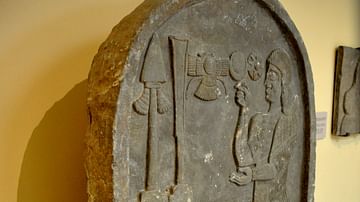
Image
Stele of Bel-harran-beli-usur
Bel-harran-beli-usur was a high palace official (chamberlain) during the reign of the Assyrian kings Shalmaneser IV (782-773 BC) and Tigleth-Pileser III (744-727 BC). He built a city and a large temple to the west of Nineveh. The stele features...
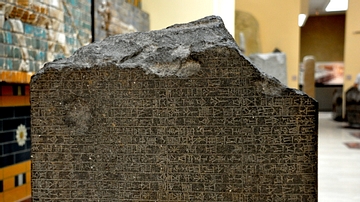
Image
Stele of King Nabonidus, a close-up view
It narrates the various religious activities of king Nabonidus and contains the harassment of enemies to the city of Babylon and nearby cities and the renovation of these cities by him as well as homage paid to Gods welling in them. The stele...
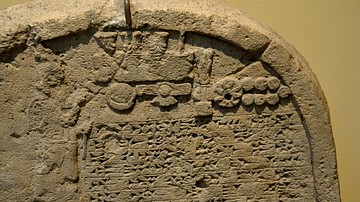
Image
Stele of King Sennacherib, a Close-up View
Limestone stele depicting Sennacherib praying in front of divine symbols and gods and recording the king's achievements and expansion of his royal capital, Nineveh. From Nineveh, Mesopotamia, modern-day northern Iraq. Neo-Assyrian Empire...
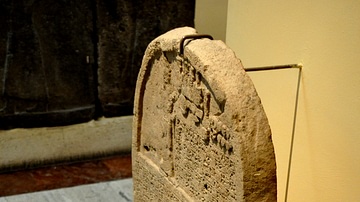
Image
Stele of King Sennacherib
This stele was made of limestone and was found in Nineveh. On the relief, the Assyrian king Sennacherib prays in front of divine symbols and Gods. It records the king's achievements and expansion of his royal capital, Nineveh. Reign of Sennacherib...
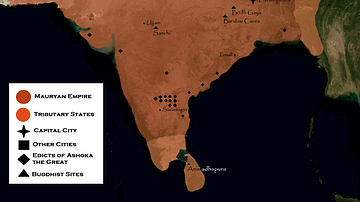
Image
Mauryan Empire
The Mauryan Empire at its greatest extent in 265 BCE.

Image
Tutankhamun & Ankhsenamun
A detail from the throne of Tutankhamun which shows the pharaoh with his wife Ankhsenamun on the right. c. 1327 BCE.
National Museum, Cairo.

Image
Babylonian Lion
A pacing, roaring lion, once part of King Nebuchadnezzar II’s throne room in his palace in the ancient city of Babylon. These roaring lions emphasized the power and might of the Babylonian king. Babylon, Mesopotamia, modern-day Iraq, Neo-Babylonian...
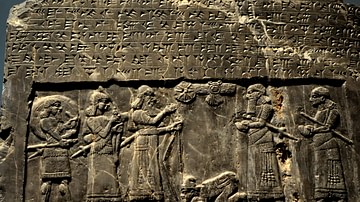
Image
The Black Obelisk of Shalmaneser III, side A, upper register
The Assyrian king Shalmaneser III, holding a bow, receives a tribute from Sua the Gilzanean. The king faces his field marshal and another official.From Nimrud, (ancient Kalhu), near the building of Shalmaneser, neo-Assyrian era, 827 BCE...

Image
The Black Obelisk of Shalmaneser III, side A, 5th register
Tribute from Qarparunda the Patinean: silver, gold, tin, "fast" bronze, ivory (tusks), and ebony. Patina is modern Antakya, south of Turkey. From Nimrud, (ancient Kalhu), near the building of Shalmaneser, neo-Assyrian era, 827 BCE, Mesopotamia...
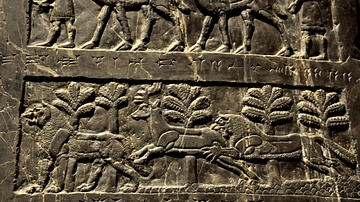
Image
The Black Obelisk of Shalmaneser III, side A, 4th register
Lions and a stag from Marduk-apla-usur the Suhean, probably for the Royal hunting park. Suhi is an area on the middle Euphrates, between modern Syria and Iraq. From Nimrud, (ancient Kalhu), near the building of Shalmaneser, neo-Assyrian era...